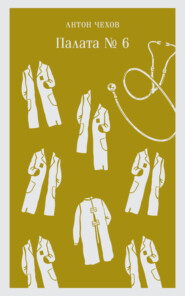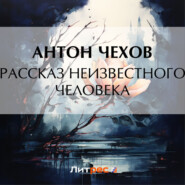По всем вопросам обращайтесь на: info@litportal.ru
(©) 2003-2024.
✖
The Schoolmaster and Other Stories
Настройки чтения
Размер шрифта
Высота строк
Поля
We all meet together and wait.
"What is the cause of the eclipse?" asks Mashenka.
I reply: "A solar eclipse occurs when the moon, moving in the plane of the ecliptic, crosses the line joining the centres of the sun and the earth."
"And what does the ecliptic mean?"
I explain. Mashenka listens attentively.
"Can one see through the smoked glass the line joining the centres of the sun and the earth?" she enquires.
I reply that this is only an imaginary line, drawn theoretically.
"If it is only an imaginary line, how can the moon cross it?" Varenka says, wondering.
I make no reply. I feel my spleen rising at this naïve question.
"It's all nonsense," says Mashenka's maman. "Impossible to tell what's going to happen. You've never been in the sky, so what can you know of what is to happen with the sun and moon? It's all fancy."
At that moment a black patch begins to move over the sun. General confusion follows. The sheep and horses and cows run bellowing about the fields with their tails in the air. The dogs howl. The bugs, thinking night has come on, creep out of the cracks in the walls and bite the people who are still in bed.
The deacon, who was engaged in bringing some cucumbers from the market garden, jumped out of his cart and hid under the bridge; while his horse walked off into somebody else's yard, where the pigs ate up all the cucumbers. The excise officer, who had not slept at home that night, but at a lady friend's, dashed out with nothing on but his nightshirt, and running into the crowd shouted frantically: "Save yourself, if you can!"
Numbers of the lady visitors, even young and pretty ones, run out of their villas without even putting their slippers on. Scenes occur which I hesitate to describe.
"Oh, how dreadful!" shriek the variegated young ladies. "It's really too awful!"
"Mesdames, watch!" I cry. "Time is precious!"
And I hasten to measure the diameters. I remember the corona, and look towards the wounded officer. He stands doing nothing.
"What's the matter?" I shout. "How about the corona?"
He shrugs his shoulders and looks helplessly towards his arms. The poor fellow has variegated young ladies on both sides of him, clinging to him in terror and preventing him from working. I seize a pencil and note down the time to a second. That is of great importance. I note down the geographical position of the point of observation. That, too, is of importance. I am just about to measure the diameter when Mashenka seizes my hand, and says:
"Do not forget to-day, eleven o'clock."
I withdraw my hand, feeling every second precious, try to continue my observations, but Varenka clutches my arm and clings to me. Pencil, pieces of glass, drawings – all are scattered on the grass. Hang it! It's high time the girl realized that I am a man of violent temper, and when I am roused my fury knows no bounds, I cannot answer for myself.
I try to continue, but the eclipse is over.
"Look at me!" she whispers tenderly.
Oh, that is the last straw! Trying a man's patience like that can but have a fatal ending. I am not to blame if something terrible happens. I allow no one to make a laughing stock of me, and, God knows, when I am furious, I advise nobody to come near me, damn it all! There's nothing I might not do! One of the young ladies, probably noticing from my face what a rage I am in, and anxious to propitiate me, says:
"I did exactly what you told me, Nikolay Andreitch; I watched the animals. I saw the grey dog chasing the cat just before the eclipse, and wagging his tail for a long while afterwards."
So nothing came of the eclipse after all.
I go home. Thanks to the rain, I work indoors instead of on the balcony. The wounded officer has risked it, and has again got as far as "I was born in." when I see one of the variegated young ladies pounce down on him and bear him off to her villa.
I cannot work, for I am still in a fury and suffering from palpitation of the heart. I do not go to the arbour. It is impolite not to, but, after all, I can't be expected to go in the rain.
At twelve o'clock I receive a letter from Mashenka, a letter full of reproaches and entreaties to go to the arbour, addressing me as "thou." At one o'clock I get a second letter, and at two, a third.. I must go… But before going I must consider what I am to say to her. I will behave like a gentleman.
To begin with, I will tell her that she is mistaken in supposing that I am in love with her. That's a thing one does not say to a lady as a rule, though. To tell a lady that one's not in love with her, is almost as rude as to tell an author he can't write.
The best thing will be to explain my views of marriage.
I put on my winter overcoat, take an umbrella, and walk to the arbour.
Knowing the hastiness of my temper, I am afraid I may be led into speaking too strongly; I will try to restrain myself.
I find Nadenka still waiting for me. She is pale and in tears. On seeing me she utters a cry of joy, flings herself on my neck, and says:
"At last! You are trying my patience… Listen, I have not slept all night… I have been thinking and thinking… I believe that when I come to know you better I shall learn to love you.."
I sit down, and begin to unfold my views of marriage. To begin with, to clear the ground of digressions and to be as brief as possible, I open with a short historical survey. I speak of marriage in ancient Egypt and India, then pass to more recent times, a few ideas from Schopenhauer. Mashenka listens attentively, but all of a sudden, through some strange incoherence of ideas, thinks fit to interrupt me:
"Nicolas, kiss me!" she says.
I am embarrassed and don't know what to say to her. She repeats her request. There seems no avoiding it. I get up and bend over her long face, feeling as I do so just as I did in my childhood when I was lifted up to kiss my grandmother in her coffin. Not content with the kiss, Mashenka leaps up and impulsively embraces me. At that instant, Mashenka's maman appears in the doorway of the arbour… She makes a face as though in alarm, and saying "sh-sh" to someone with her, vanishes like Mephistopheles through the trapdoor.
Confused and enraged, I return to our villa. At home I find Varenka's maman embracing my maman with tears in her eyes. And my maman weeps and says:
"I always hoped for it!"
And then, if you please, Nadenka's maman comes up to me, embraces me, and says:
"May God bless you!.. Mind you love her well… Remember the sacrifice she is making for your sake!"
And here I am at my wedding. At the moment I write these last words, my best man is at my side, urging me to make haste. These people have no idea of my character! I have a violent temper, I cannot always answer for myself! Hang it all! God knows what will come of it! To lead a violent, desperate man to the altar is as unwise as to thrust one's hand into the cage of a ferocious tiger. We shall see, we shall see!
* * * * *
And so, I am married. Everybody congratulates me and Varenka keeps clinging to me and saying:
"Now you are mine, mine; do you understand that? Tell me that you love me!" And her nose swells as she says it.
I learn from my best man that the wounded officer has very cleverly escaped the snares of Hymen. He showed the variegated young lady a medical certificate that owing to the wound in his temple he was at times mentally deranged and incapable of contracting a valid marriage. An inspiration! I might have got a certificate too. An uncle of mine drank himself to death, another uncle was extremely absent-minded (on one occasion he put a lady's muff on his head in mistake for his hat), an aunt of mine played a great deal on the piano, and used to put out her tongue at gentlemen she did not like. And my ungovernable temper is a very suspicious symptom.
But why do these great ideas always come too late? Why?
IN THE DARK
A FLY of medium size made its way into the nose of the assistant procurator, Gagin. It may have been impelled by curiosity, or have got there through frivolity or accident in the dark; anyway, the nose resented the presence of a foreign body and gave the signal for a sneeze. Gagin sneezed, sneezed impressively and so shrilly and loudly that the bed shook and the springs creaked. Gagin's wife, Marya Mihalovna, a full, plump, fair woman, started, too, and woke up. She gazed into the darkness, sighed, and turned over on the other side. Five minutes afterwards she turned over again and shut her eyes more firmly but she could not get to sleep again. After sighing and tossing from side to side for a time, she got up, crept over her husband, and putting on her slippers, went to the window.
It was dark outside. She could see nothing but the outlines of the trees and the roof of the stables. There was a faint pallor in the east, but this pallor was beginning to be clouded over. There was perfect stillness in the air wrapped in slumber and darkness. Even the watchman, paid to disturb the stillness of night, was silent; even the corncrake – the only wild creature of the feathered tribe that does not shun the proximity of summer visitors – was silent.

















